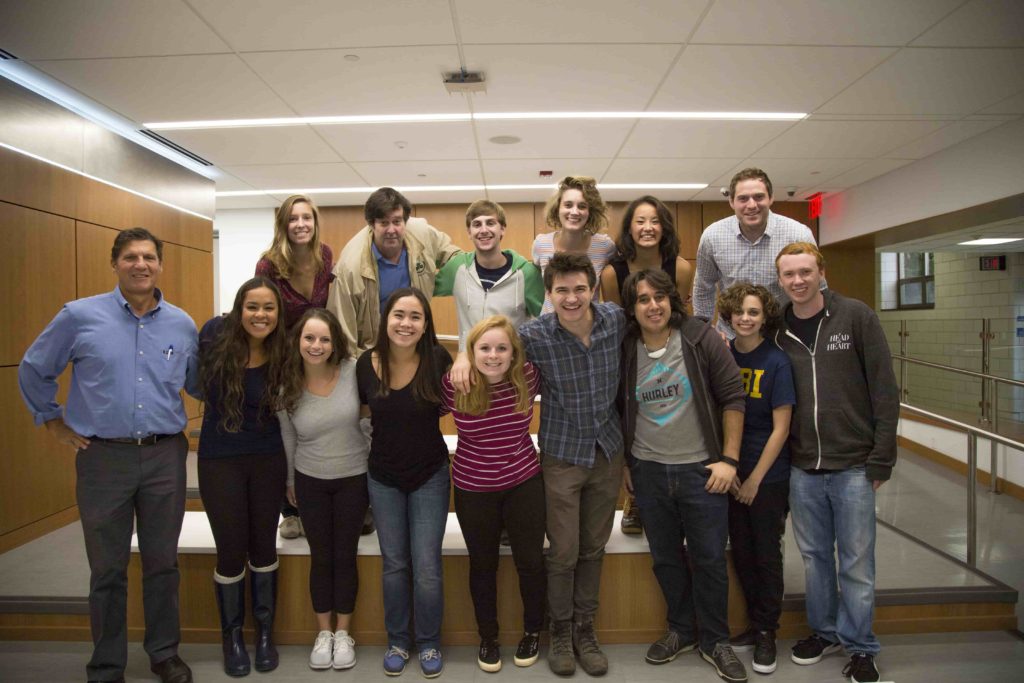The importance of telling more than a ‘poverty porn’ story for Camden
 June 21, 2017
Category: Event, Feature, Featured, Long, Results
June 21, 2017
Category: Event, Feature, Featured, Long, Results
Type “Camden, NJ” into Google and you can expect news headlines to more or less read the same.
“America’s most dangerous city.” “One of America’s poorest cities.” There’s even one going as far as calling Camden the “apocalypse” of New Jersey and “America’s most desperate town.”
Yes, there’s no denying that Camden is struggling and has been for some time now, but one team of 13 students at Villanova University has produced a documentary that looks at the hope and potential for students in this city, specifically by focusing their lenses on an organization that we’re pretty familiar with by now.
The documentary, “Hope Works Here,” focuses on the work being done by Hopeworks ‘N Camden, a nonprofit teaching tech and computer skills to Camden youth, and was produced by Bridgital Studios, a student-run production company formed out of the social justice documentary course in Villanova’s College of Liberal Arts and Sciences.
Led by professors Stephen McWilliams and John O’Leary, the course and its students have produced a number of documentaries all focusing on organizations and individuals doing positive work around societal and world issues, like undocumented immigrants in America or impoverished communities in India.
“Hope Works Here” had its premiere last month at the university’s Connelly Center Cinema and will be having its first Camden screening next week on June 29 at Rutgers University.
Register for the event here, and check out the trailer for the documentary below.
Dan Rhoton, executive director of Hopeworks ‘N Camden, said the connection between his organization and the film team was made when a former Hopeworks board member approached one of the professors of the course professors at another film screening about the possibility of making one on Hopeworks.
And apparently, all it took was one visit to Hopeworks for the professor to decide that it would be the subject for the next documentary.
For Rhoton, he’s seen and had enough of the hopeless films that can often make up the only image people have of Camden, what he and Hopeworks refers to as “poverty porn” — abandoned buildings, rampant crime, tragic backdrop music.
“And I get it because that’s the reality for a lot of folks in Camden but those films all miss the life and the energy,” Rhoton said. “They miss the awesomeness of Camden because they’re so eager to show you how desolate it is.”
It’s why he credits the Villanova team for not only focusing on the hope and positivity that’s in Camden while simultaneously not shying away from those darker realities that Hopeworks is working to address. Even at the first screening, Rhoton said it was clear that some members of the audience were getting a broader picture of Camden they weren’t used to.
“For some members of the audience, it showed them Camden for the first time — a Camden beyond the headline, a Camden made up of people,” he said. “It’s a harder story to tell I think, a little more nuanced but they pulled it off.”
Caroline Foley, a line producer for the film among filling many other roles on the small production team, admitted that she and many of her other classmates were initially ignorant to the Camden situation as well, thinking immediately of the crime there. Even their first expectations for a documentary on Hopeworks was that it would be a tech movie.
But once they started filming and researching this past August, as well as interviewing historians and scholars on the history and development of Camden, it became clear to them that they wanted to tell a story bigger than just the happenings contained within Hopeworks. That meant also capturing the sadder moments with the students they talked with, which led to focusing on the importance of the “trauma-informed care” that Hopeworks also implements with its programming.
“We had to make sure we were accurately describing what they were doing, not just picking or choosing, like ‘Oh they teach kids how to code, but let’s forget about the sad parts,’” said Foley, a recent communications graduate at Villanova with a focus on media and production and public relations.
If the documentary is able to expose more people to how Hopeworks is playing a part in the revitalization of Camden, Foley believes they’ve done their part. Coincidentally, Hopeworks seems to be at a crossroads of sorts at determining where their future lies, as Rhoton said Hopeworks’ current space is not able to serve its capacity.
Philly may even be a possible location for Hopeworks as it plans to launch a pilot program here at JEVS Human Services’ training facility.
Trending News










